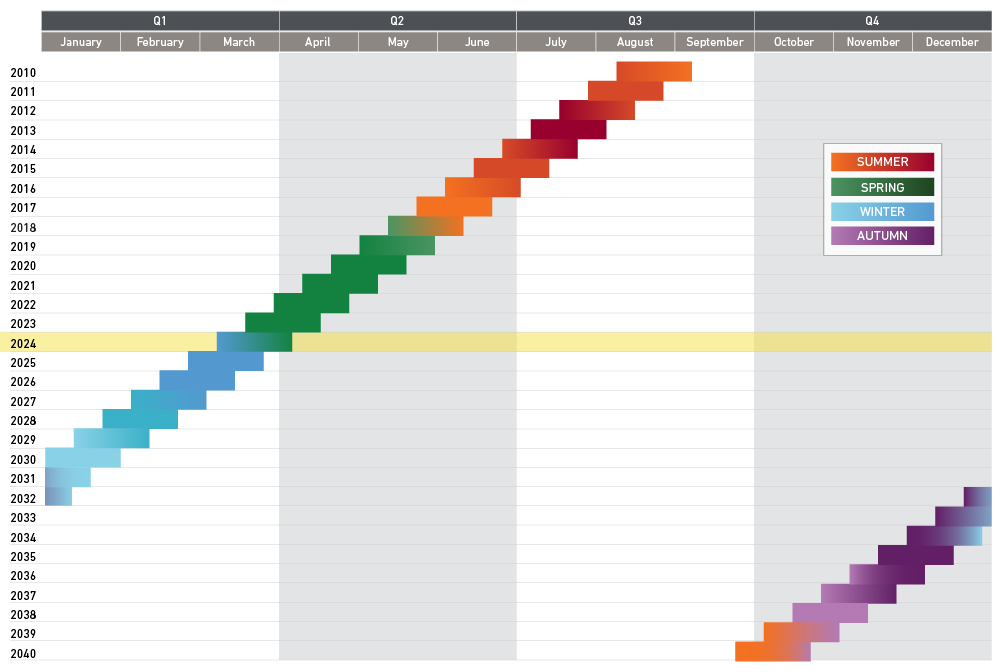The holy month of Ramadan affects companies and products differently each year, and it is essential for investors in Muslim-majority countries to understand these effects. The holiday, during which Muslims fast from dawn to dusk, starts 10-12 days earlier each year, unlike fixed holidays such as Christmas. This year, Ramadan starts at sunset on March 10 and lasts until April 9.
Ramadan’s Slowly Shifting Seasonality
Timing of Ramadan relative to Northern Hemisphere seasons, 2010-2040

The fact that the holy month moves each year means that the effects of Ramadan on businesses change over time. Recently, when Ramadan was during the summer, it was a significant headwind for companies such as brewers, as the fast suppressed demand for beer during what would otherwise be a peak month. But now as Ramadan is moving earlier in the year, that headwind will lessen.



